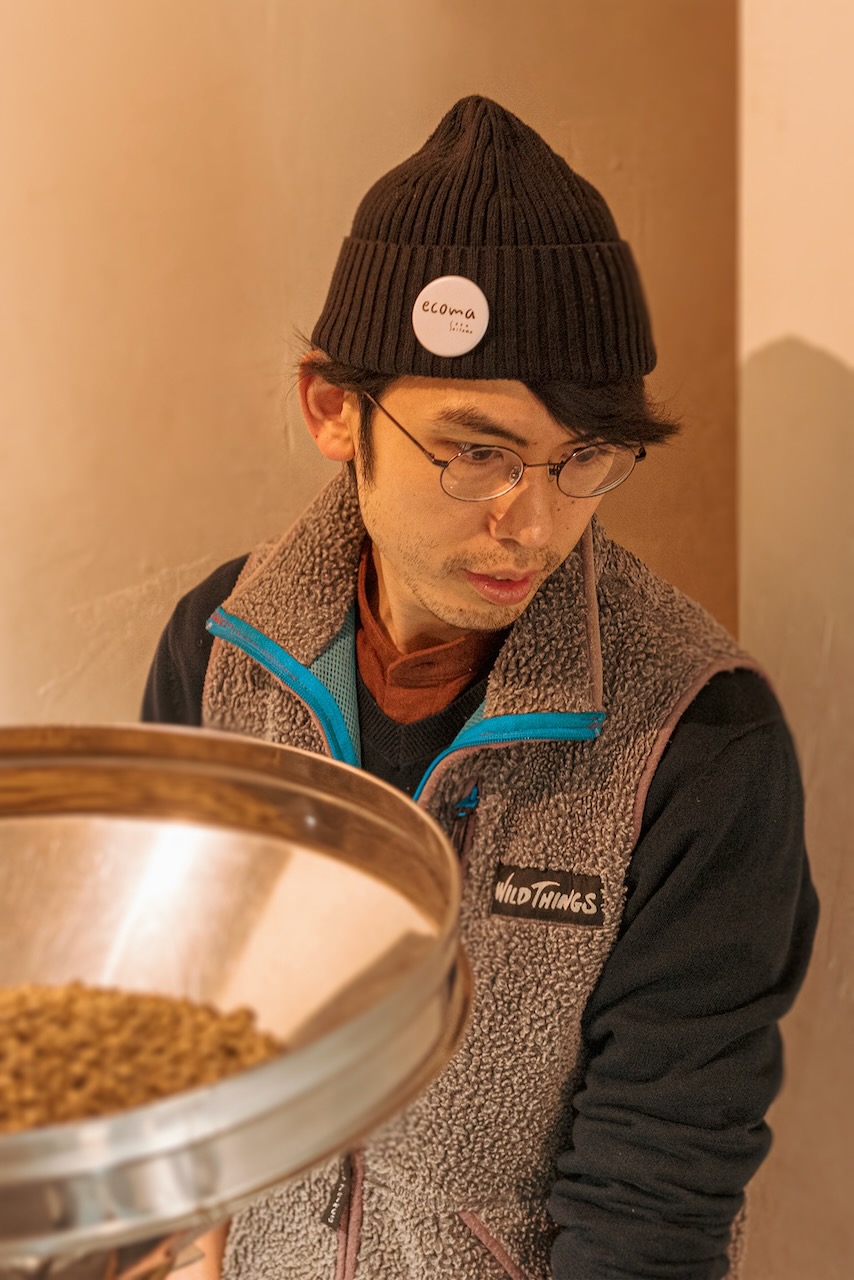
Beacon of Hope: Shining Light on Once-Deserted Neighborhood
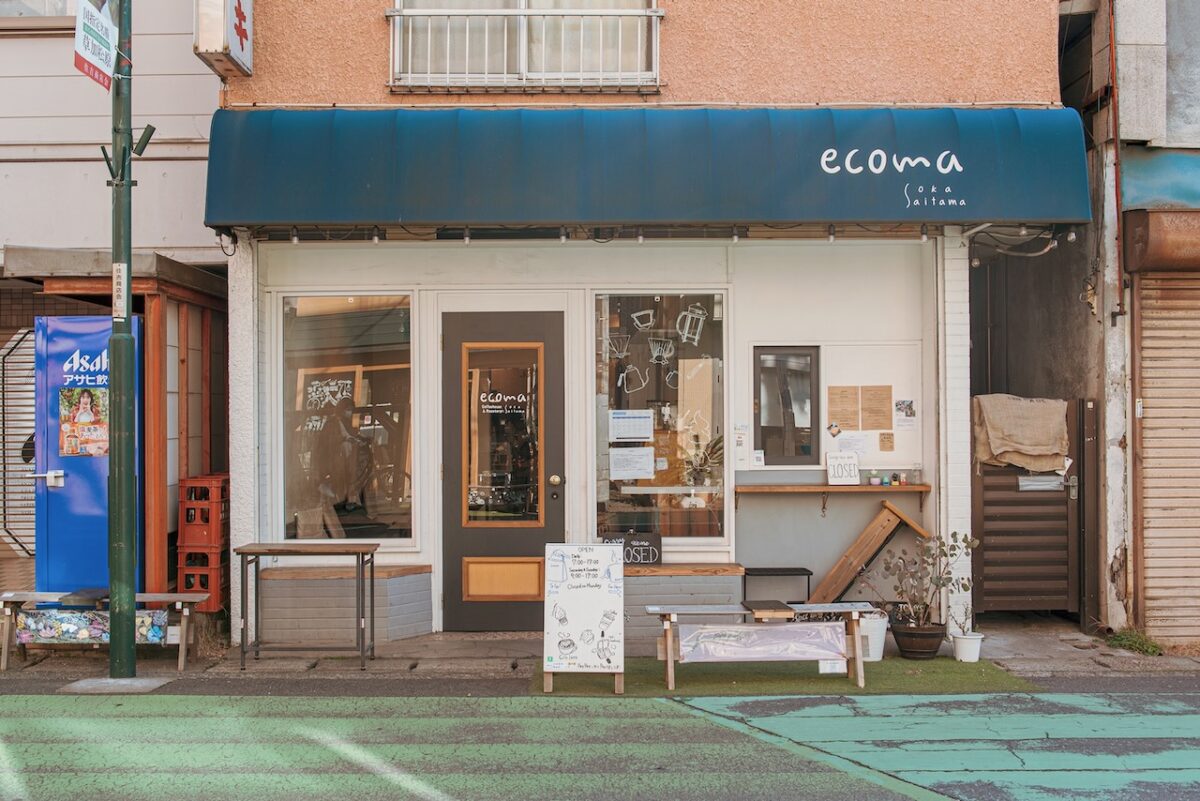
Soka City, Saitama Prefecture — Known as a commuter town since the post-war Japanese economic miracle, several shopping districts have flourished in this city, including the Soka Station environs. As the years went by, however, the city’s population declined and the number of vacant houses and shops increased. Once called a “bedroom suburb,” Soka City was concerned about the situation and launched the “Soka Renovation Town Development Initiative” in 2016. The “Renovation School” is one of the pillars of this project, aimed at creating a new industry and revitalize the city by using idle and underutilized real estate.
Junpei Abe, originally from Tokyo, participated in this school and opened ecoma coffee in 2018, as if he had been groomed to do so. Moving to a place to which he had no connection, Abe has been nurturing his shop while going through his own personal changes. What is he thinking and looking ahead to, now in a place where he did not expect to come and run a shop?
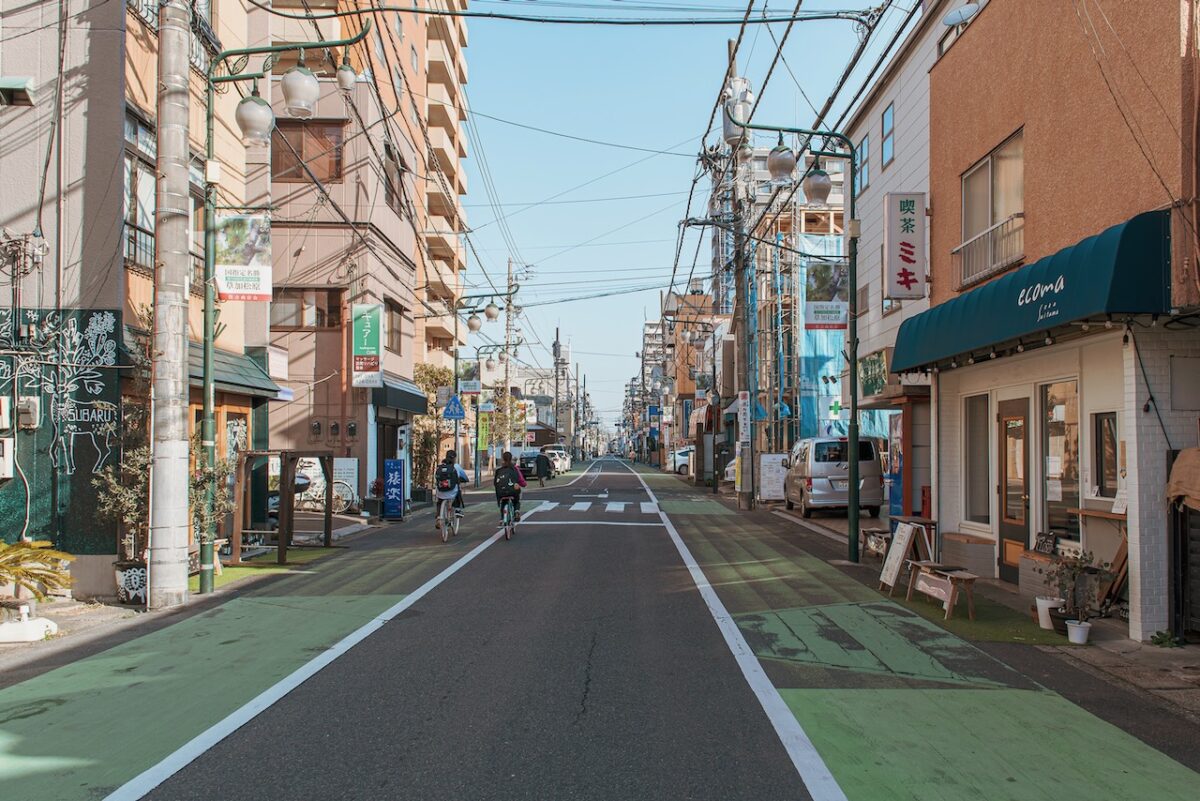
Turning the ideal café in Portland into reality
ecoma coffee is located in a shopping district near Soka Station. Nearby are a traditional liquor shop and a seal shop that has been in business for several generations. Directly across the street from the shop is a bar that was also born out of the “Renovation School.” This shopping district, with its mixture of old and new shops, is a historic street that once bustled as the Nikko Kaido since the Edo period. But in recent years, many shops have been shuttered.
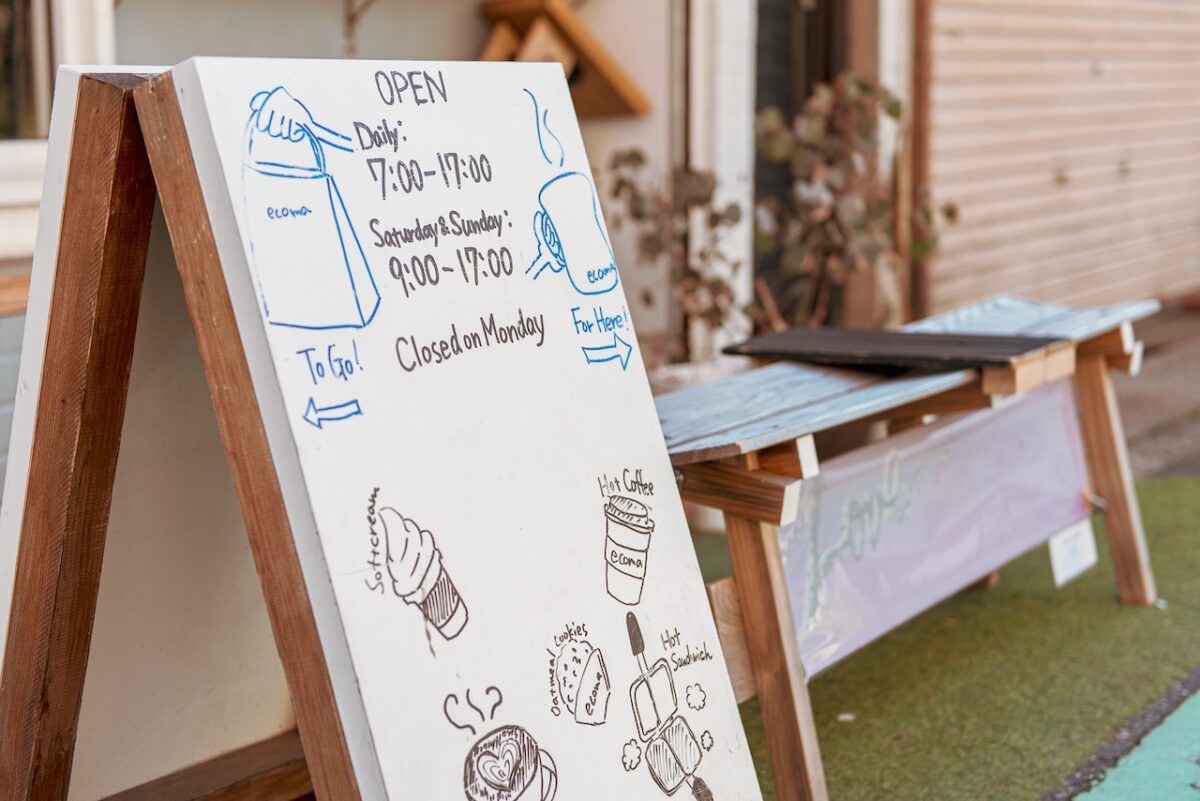
At ecoma coffee, which opens at 7 am, the staff watch over students attending a nearby elementary school. The shop aims for a casual American coffee shop vibe and attracts a mix of customers from the morning, such as those on their work commute to Tokyo and to Soka, the neighborhood elderly and greengrocer. Most of these customers order takeout, and the shop stays busy until around 9 am.
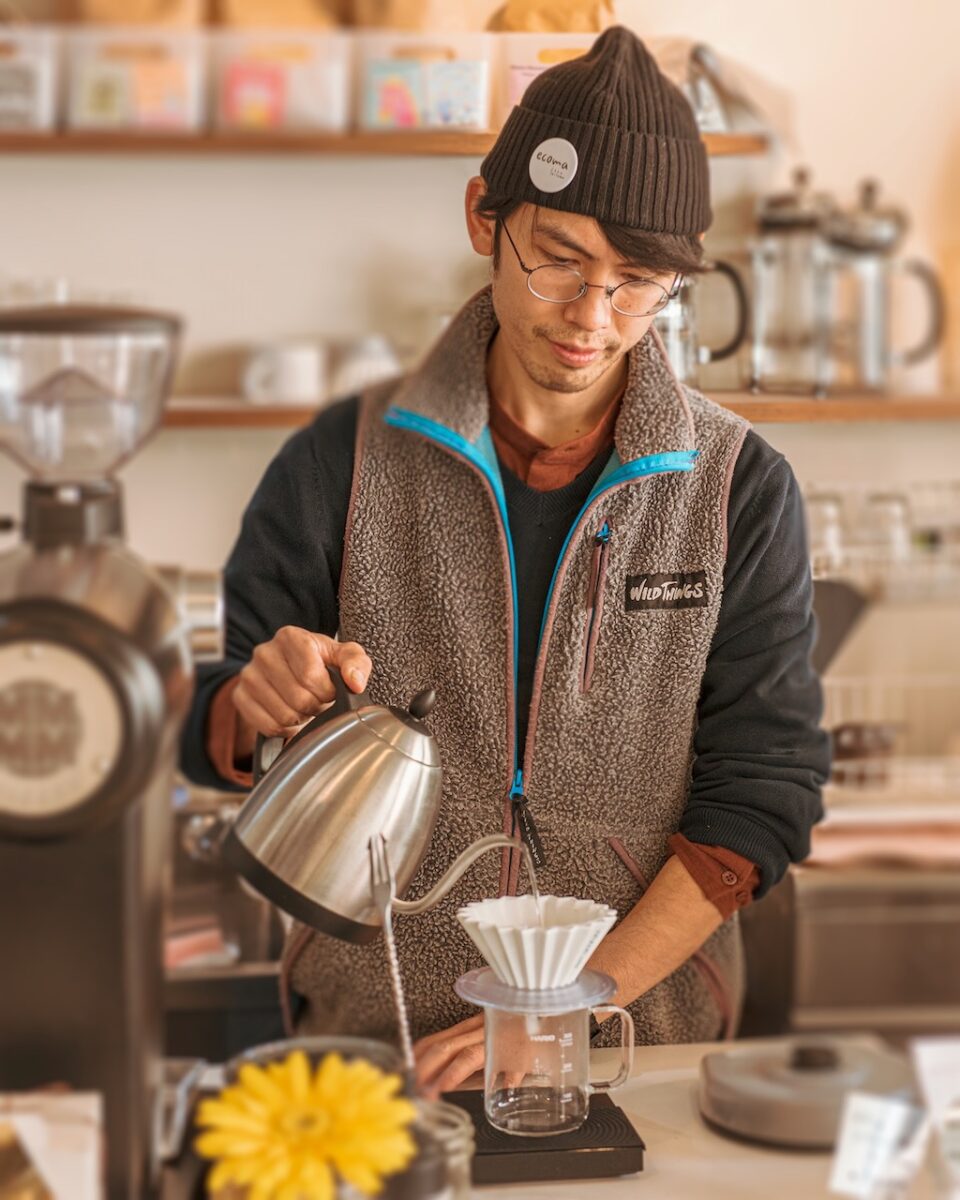
The shop’s motto is “We caffeinate your life—making your life exciting with coffee.” This concept is imbued with Abe’s desire to “provide many people with a gustatory experience that will surprise and enrich their hearts through our specialty coffees.”
“In the future, I’d like to expand the scale of our shop, and serve coffees that our shop previously couldn’t so that more people could drink it. I’m also thinking of opening more shops and expanding our mail order service. And I’d also like to actively participate in competitions,” says Abe.
Abe modeled the shop’s management style after a coffee shop in Portland, the US, where he stayed for four months prior to opening his own shop. He applied for a student visa to experience the taste he longed for in the local area. Though rejected once, he did not give up. He asked an acquaintance working at the US Embassy to write a recommendation letter, and got the chance “by forcing himself in,” he recalls.
Abe has always liked languages and had studied abroad in Canada for a short time while he was a student, so he had no issues communicating in English. He visited local coffee shops and listened to the owners’ stories. He also attended seminars and absorbed American coffee culture with his five senses.
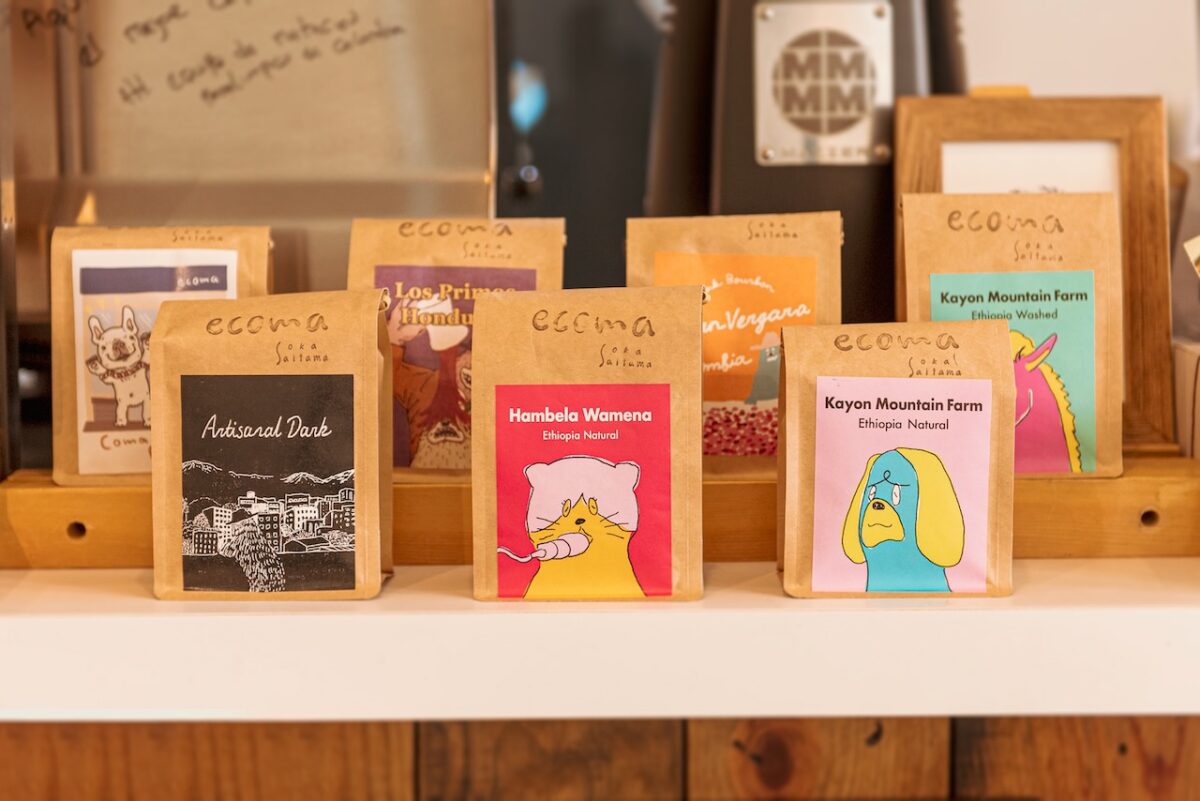
Packaging design is also one of the things he learned.
“In Portland, many shops were particular about packaging. Packaging is, in a way, like clothing on products. I thought I also wanted to put good clothes on the products that I love.
Another major reason why I pursued packaging design is that when I visited producers in El Salvador, I saw how hard they worked, making me want to create a design that would be presentable for them.”
Abe commissioned several illustrators with ties to Soka City to design the packaging for ecoma coffee. The works of artists living in the city regularly hang from the shop’s picture rail. Abe also tries to find suppliers and collaborators in the city as much as possible.
“If money can circulate in the city, the city will be revitalized,” says Abe. “The longer the residents spend their time in the city, the better the city’s environment will be and the more the population will grow. I’d like to value that cycle.”

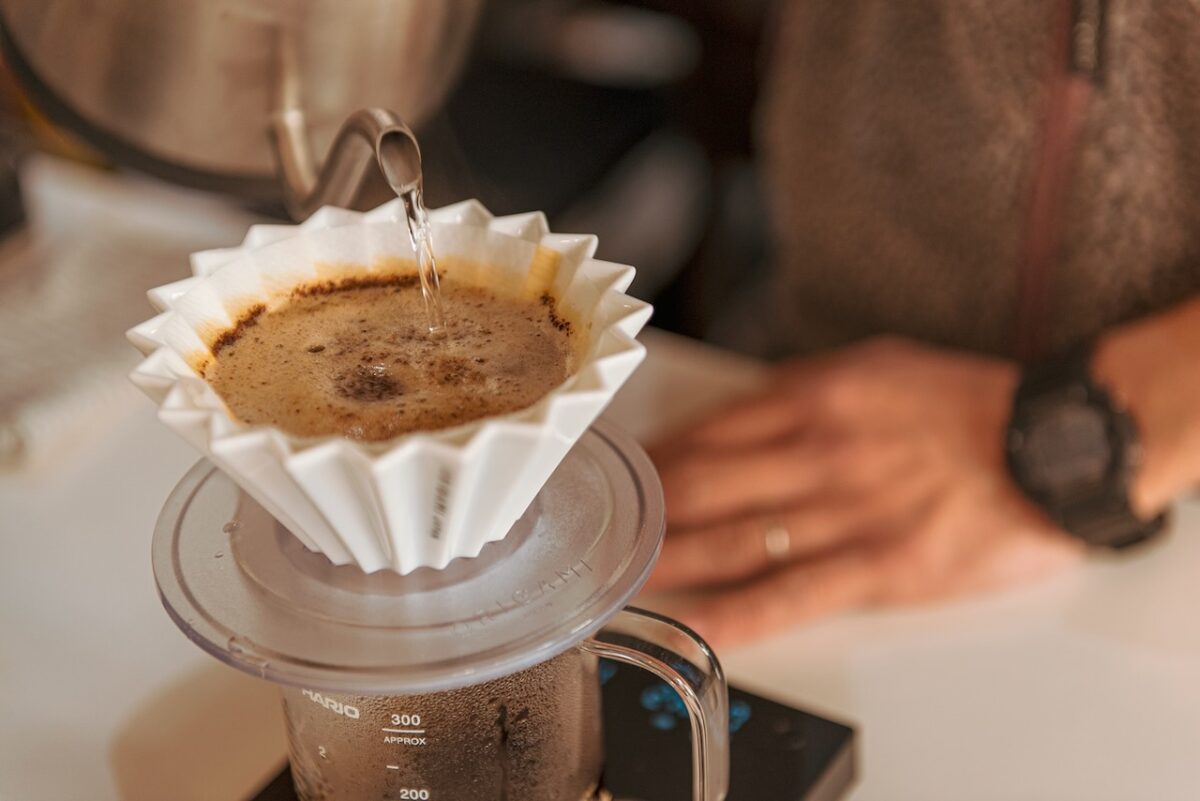
A shocking encounter leads Abe to be immersed in coffee
Abe’s coffee career began at Starbucks. When he was around 20 years old and in college, he started working part-time at Starbucks without much thought to it, thinking it was “cool and fancy.” At first, he did not really like coffee and only had the impression that it was “bitter.”
“During the interview, I was asked ‘Do you like coffee?’ And I said, ‘Yes, I do,’ lying my way into the company,” Abe laughs.
One day, however, he came across a coffee that he felt was “very sweet.” That particular moment changed his impression of coffee. Abe started visiting many coffee shops in Japan since then.
One of the most shocking things was the coffee from Stumptown Coffee Roasters, which originated in Portland. Surprised by their coffee’s individuality with its fruitiness, Abe began his immersion in the world of coffee.
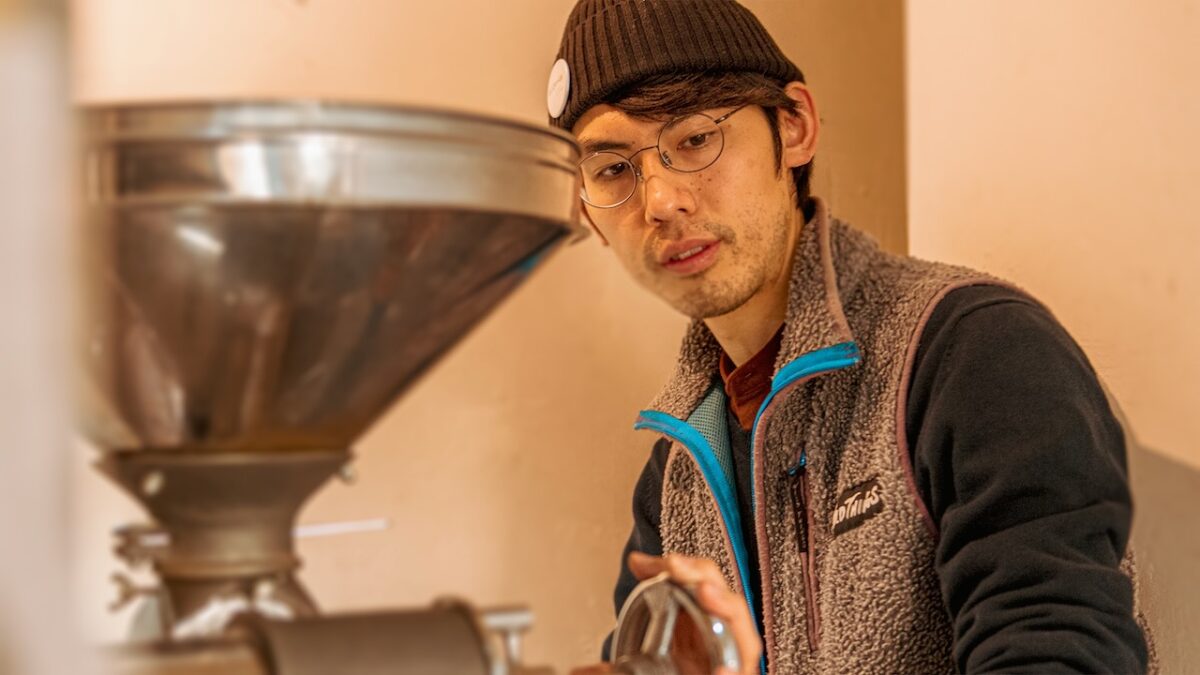
Eventually, Abe realized that among the many production stages, roasting is the decisive factor in the character of the taste. He thought, “I want to try roasting on my own.”
Once Abe makes up his mind, he is determined to push forward. He requested to become an apprentice to learn roasting from the owner of a coffee shop he used to go to as a customer. Though being turned down for many years, Abe prevailed in the end. However, the owner fell ill right after he gave Abe the green light, and the chance Abe thought he seized slipped out of his hands.
Despite all this, Abe did not give up. He got a Discovery, a small coffee roaster, and began to teach himself roasting.

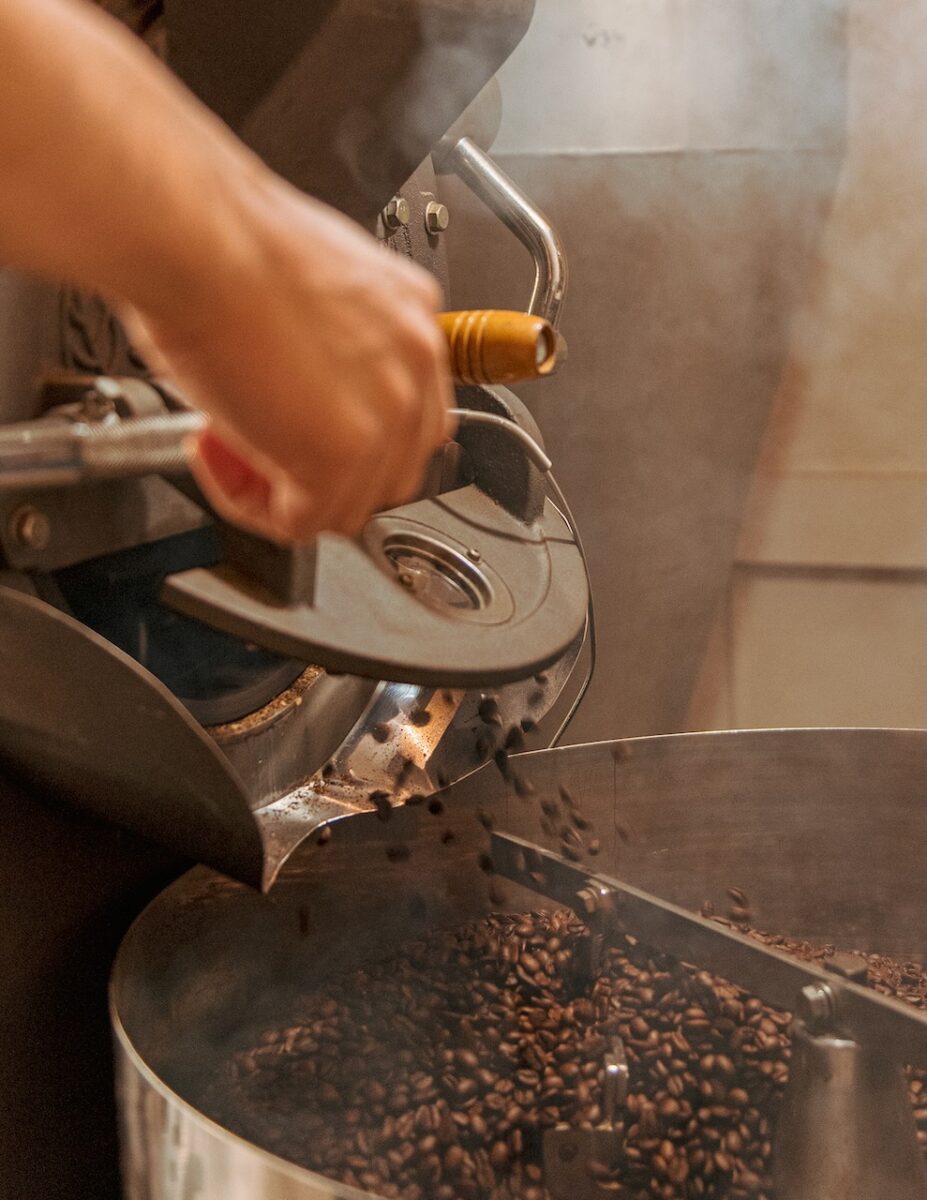
Realizing the limit to what he can do alone, moving on to the next stage
Eventually, Abe decided to open a coffee shop, and resigned from the company he was working for at the time. It was during this time that he stayed in Portland. He also visited the main shop of Stumptown Coffee Roasters to experience the taste of local coffee that he longed for.
After returning to Japan, Abe started selling his own roasted coffee by mail order and wholesale in his family home.
Since then, he wanted to have his own shop someday, but he had no concrete plan. The turning point for Abe was the Renovation School sponsored by Soka City, which he attended after returning to Japan. The full-scale three-day content included each group coming up with a business plan, presenting said plan to owners of vacant houses and shops, and aiming to turn it into an actual business.
Abe and his group members were in charge of a property that was originally used as a café. Abe himself had never lived in Soka, nor did he have any family or relatives living there. He attended the seminar because he just happened to be invited by an acquaintance.
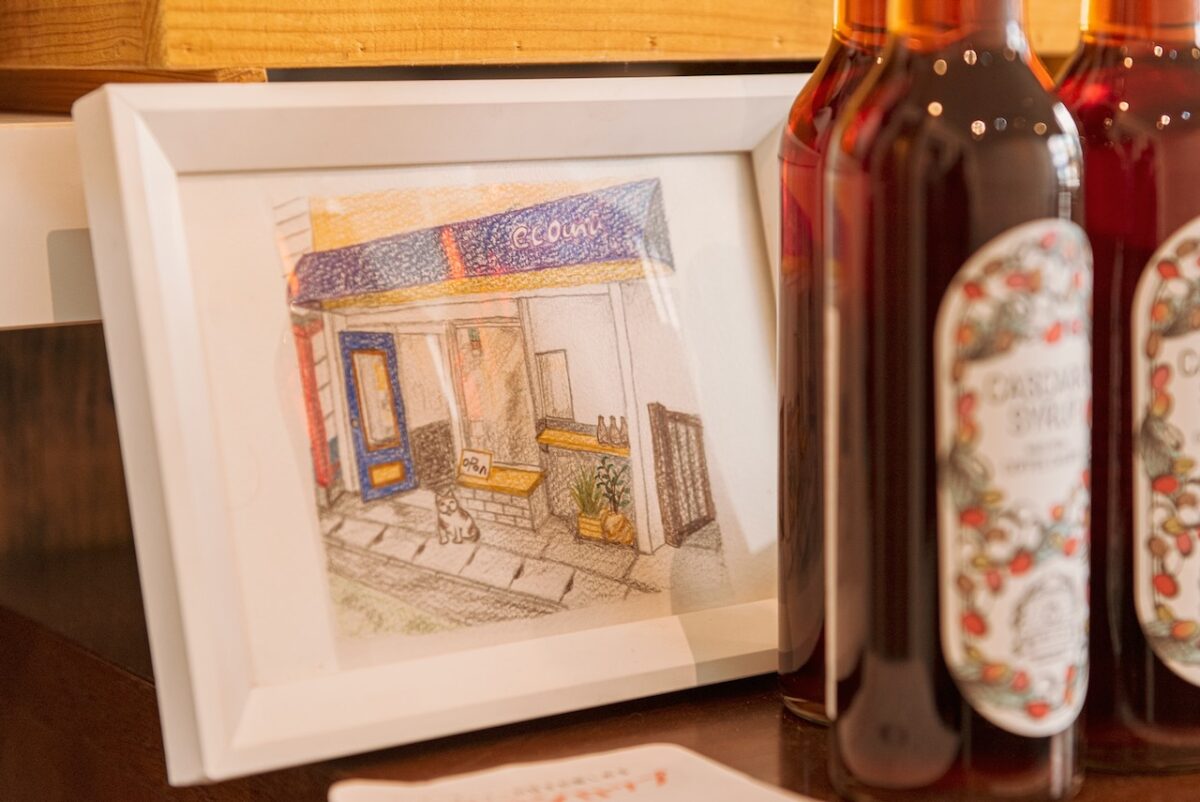
Awaiting the presentation on the final day, the groups’ discussions heated up. Grown-ups gathered and discussed their opinions in an almost quarrelsome manner. Abe was the only one in the group with shop management skills. The conversations veered away from the main point and lacked a sense of practicality, and Abe could not see the landing point whatsoever.
“Then, let’s just do it.”
Growing irritated, Abe made up his mind and called his girlfriend, who is now his wife.
“I just asked her if I could open a shop. That was the beginning of ecoma coffee.”
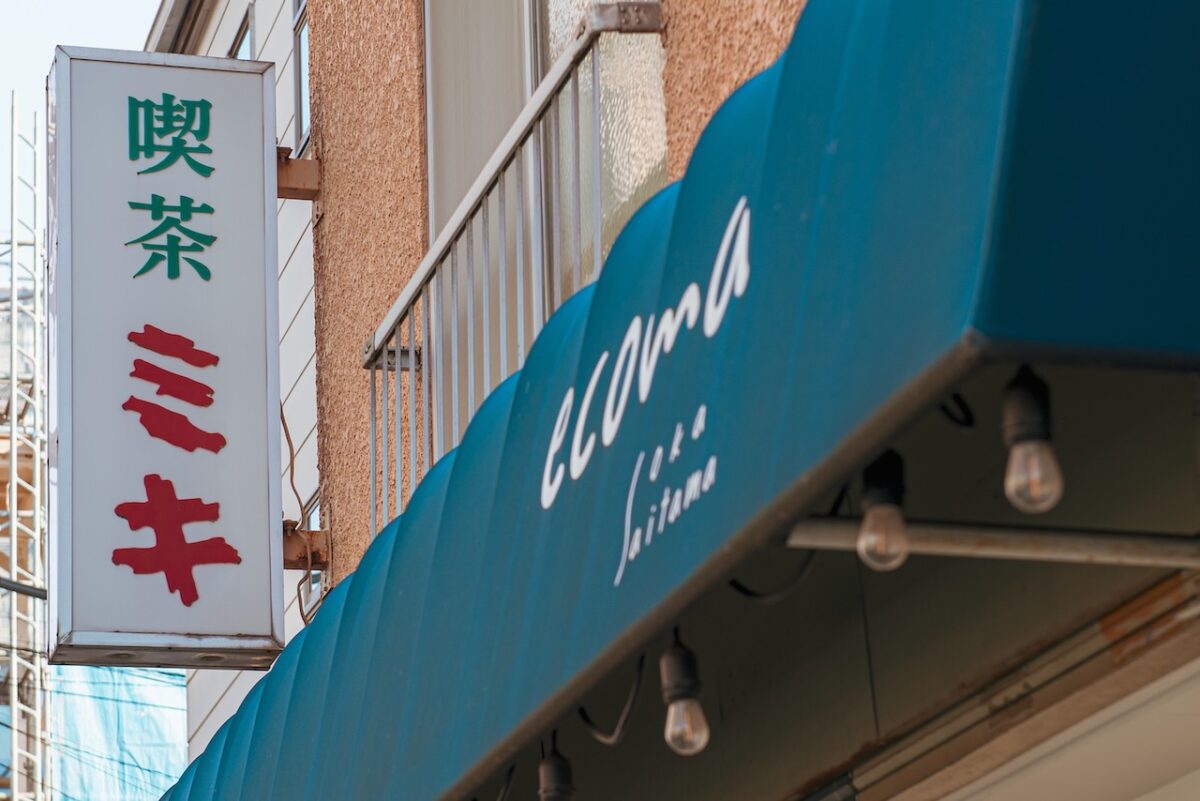
This opening was originally unplanned. He did not have any funds, either. He began by writing a long business plan and getting a loan. The shop was renovated by utilizing anything that can be left intact such as the wallpaper and windows. The “Miki” sign on the exterior wall was from the previous café.
As a shop born out of the School sponsored by the city, it was also necessary to make the business in harmony with the local community. The business plan was also put together by the entire group, and not drawn up by Abe alone.
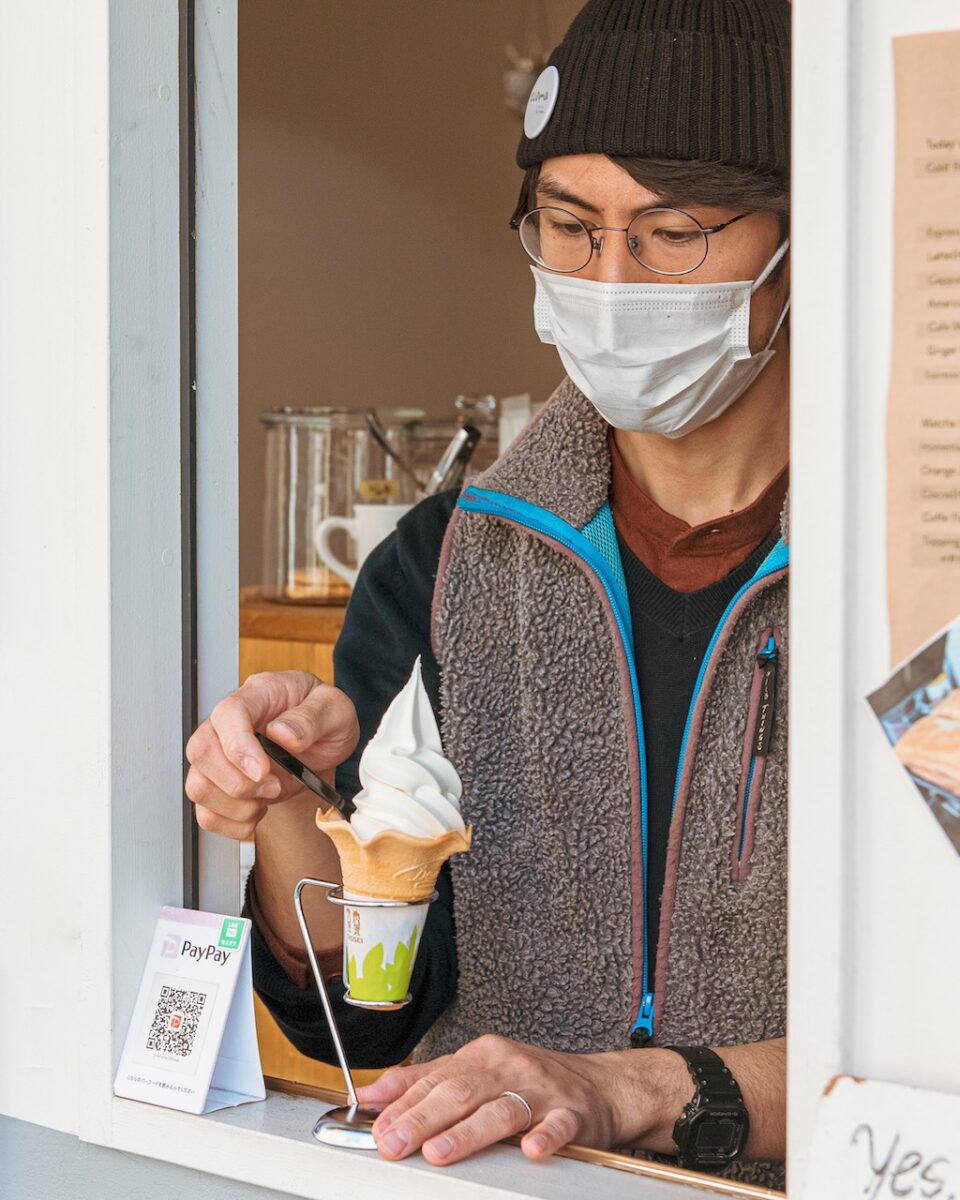
One of the ideas that came up was to provide parfaits. One group member said, “Since there’s a bar across the street from our shop, it would be a good balance if we could provide some sweets.”
He ended up deciding to drop the parfait and focus on coffee. However, the soft-serve ice cream, which he encountered while he was trying out parfaits, was an unexpected hit. Once the shop opened, elementary school students in the neighborhood began coming to buy the soft-serve ice cream.
“Actually, our shop initially became extremely popular as a soft-serve ice cream shop. Over time, the students brought their parents along, and our recognition as a coffee shop increased. The soft-serve ice cream helped us a lot.”
Abe analyzes it this way.
“I guess people in the city would be more interested if we had eye-catching latte art and delicious meals,” says Abe. “Now I feel that the taste of our fruity and sour coffee has gradually been accepted by the people in the city. But if we started as a specialty coffee shop right off the bat, we might have had a long period of struggle.”
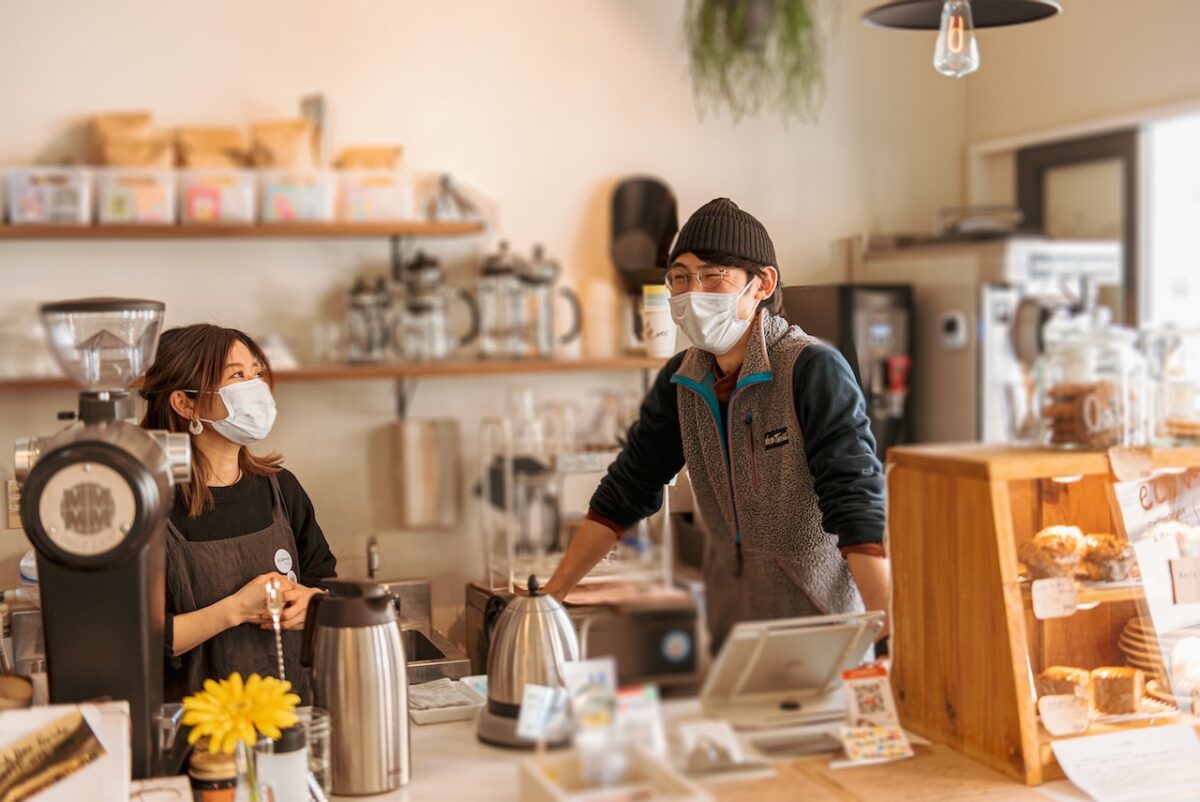
Abe’s shop, which has spread through word of mouth from locals, is now in its fourth year, and the number of customers has steadily been increasing. The shop was incorporated in May 2021, and the number of staff, which started with three people, has increased to five. The responsibility of Abe to carry the lives of employees whom he calls his “family” has also increased.
“I’ve come to think more strongly than ever that I need to create an environment where our employees can lead decent lives and thrive. My way of imposing my ego will no longer work to achieve this. I’m now focusing on how we can build together without changing our goal, and how we can have more people with whom we can have trusting relationships.”

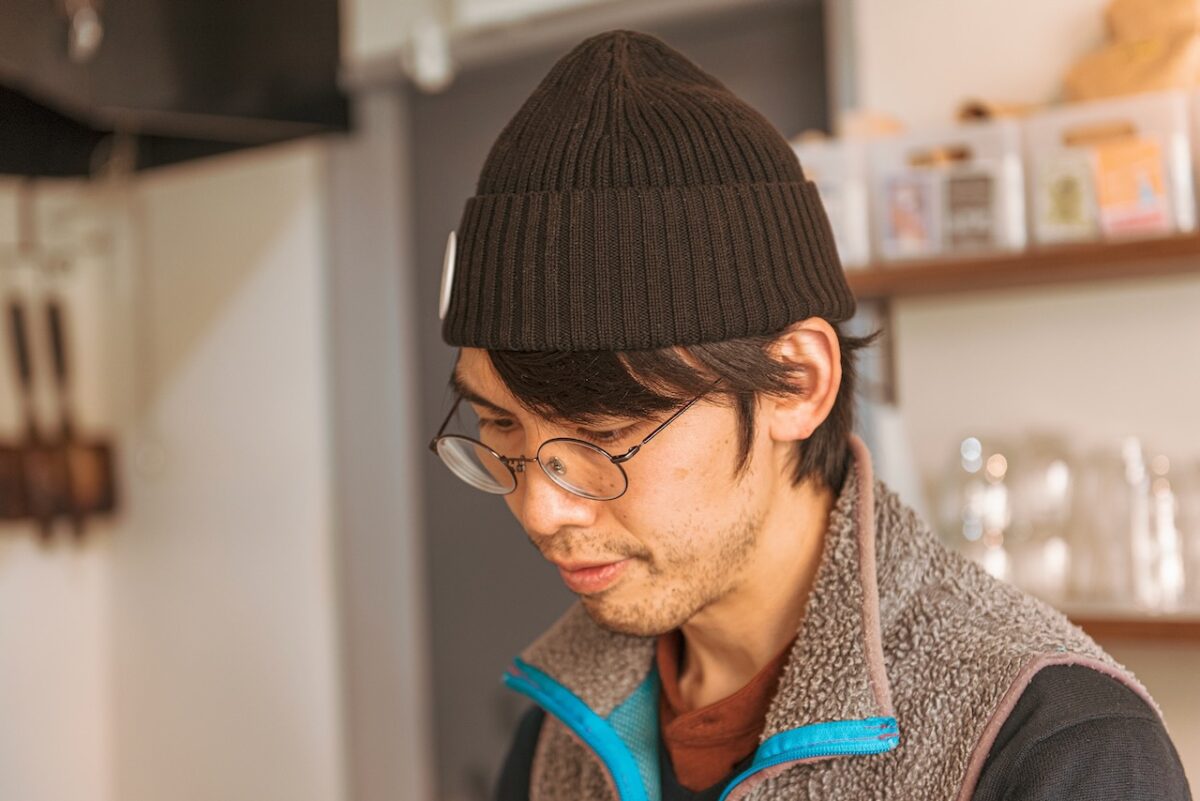
Aiming for coffee that will lead to the revitalization of the city
Before becoming a coffee shop owner, Abe had another dream. He wanted to make a living through music. He even turned down a job offer from a company in order to continue his activities as part of an acoustic duo that he formed in college. For about two years after graduation, he performed his own songs live on the street.
From music to coffee, Abe has taken a completely different path. However, his underlying passion has not changed.
“My passion for making people happy with what I make hasn’t changed. I began writing songs because I thought that if there were no songs I wanted to listen to, I should just make my own. My goal was to create and deliver something that would directly fit into someone’s mood.
Now it’s just that the means to deliver it has changed into coffee. It’s rewarding for me that those who drink the coffee I make find it delicious, and that their lives are enriched through it.”
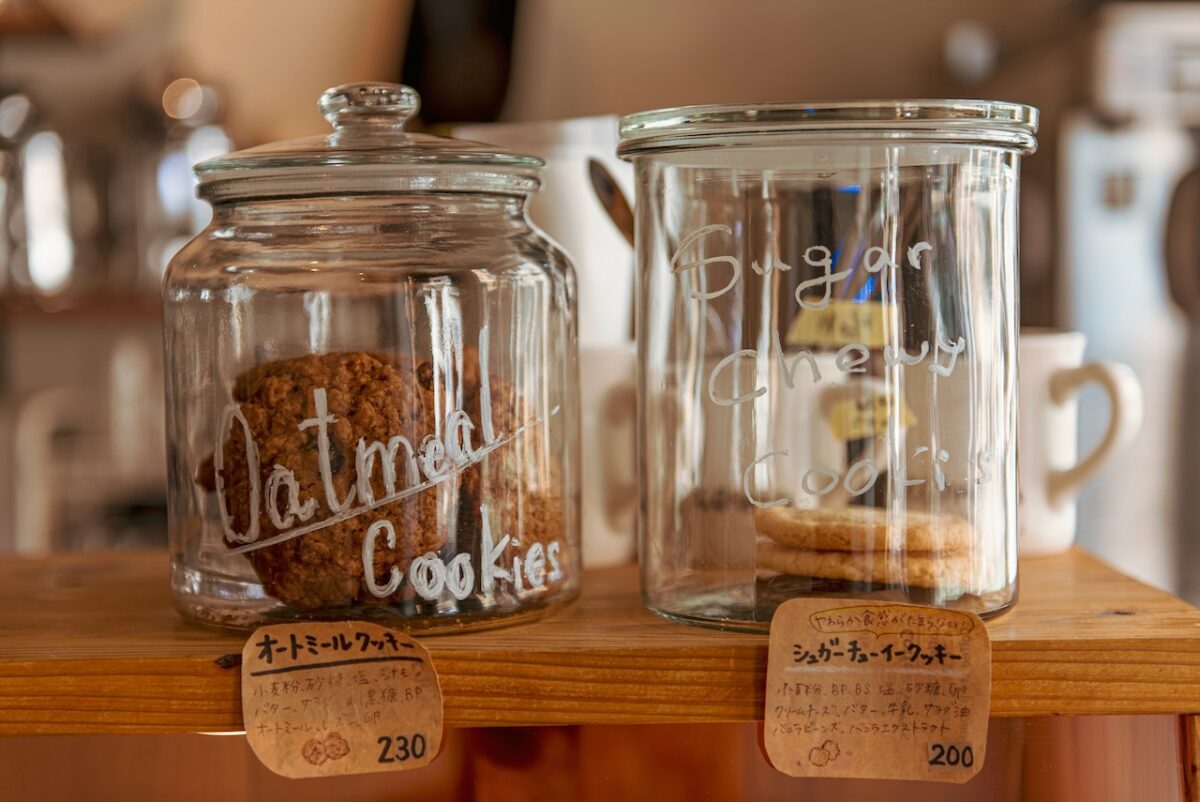
From the time he was engaged in music, he had a strong desire to provide something he made “on his own.” However, as he continued to operate the shop, he hit his limit.
“At first, I tried to do everything by myself. But I got sick once, and I had no choice but to rely on other people. I realized at that time that it’s not good for the shop to be in a situation where it can’t run without me.
Even now, people sometimes point out to me that ‘You’re doing too much work by yourself.’ But I’d like to leave work to others as much as possible. Coffee is important of course, but it’s not enough. Various factors intertwine to make our shop loved by many customers. Nowadays, I largely rely on my staff who has extensive experience as a barista and my wife who is a cook and prepares food. They help me a lot, and I’m extremely grateful.”
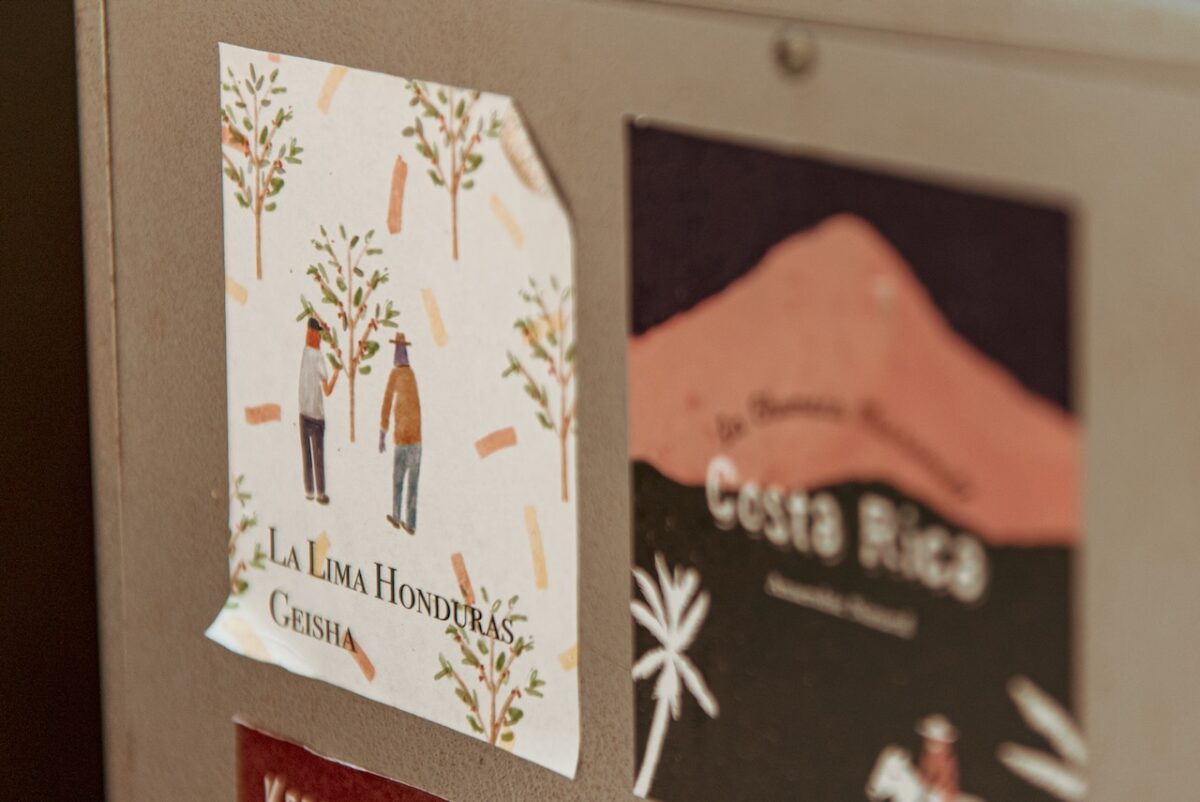
That experience also changed how Abe views coffee.
“At first, I wanted to provide coffee with my own personality. But as I encountered different specialty coffees and producers, my thinking changed. What I value most now is bringing out the characteristics of the coffee’s production areas and the taste created by the producers.”
In Soka, a place to which he had no connection, Abe is now nurturing his shop while going through his own personal changes. What he looks ahead to is the revitalization of the entire city.
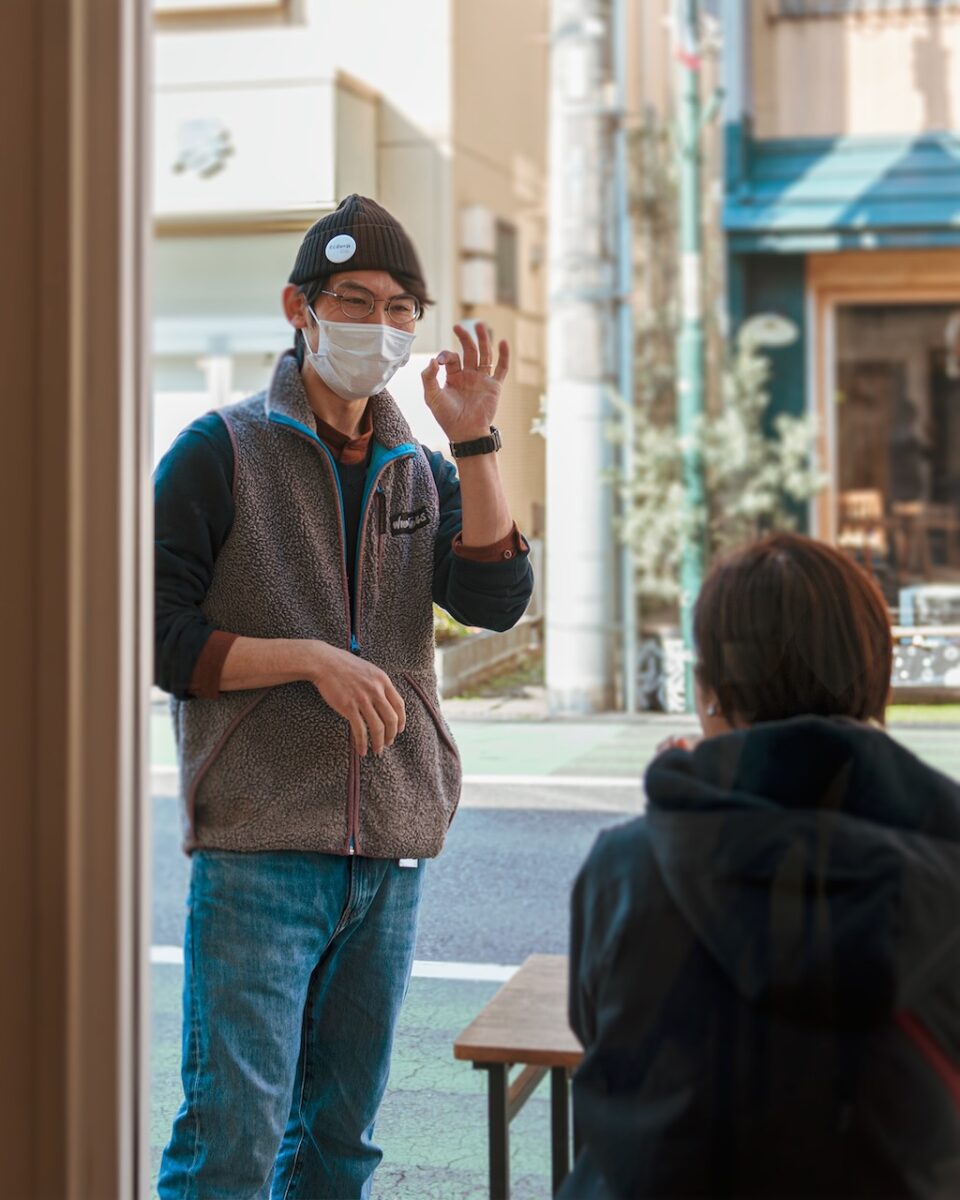
The revitalization is also the process of turning the longing he had in Portland into reality. He took the shocking Stumptown encounter as an opportunity to act on his own. In pursuit of the Portland coffee scene, Abe is now beginning to think about opening his second shop in Soka City.
“In Portland, there were many shops with a second location in the city. I think creating a robust local shop will also certainly lead to the revitalization of the city.
It was not uncommon to see coffee beans from local shops displayed on supermarket shelves or served in downtown restaurants. I’d like to aim for a shop through which an economic cycle is created in the city, leading to its revitalization and giving back to its citizens.”
That dream may be closer to reality. In recent years, Soka City has become a place where people visit from all over Japan as a successful case of renovation policy. In fact, the neighborhood of ecoma coffee has been increasingly surrounded by co-working spaces, kitchen studios, ateliers, bakeries and other establishments that were also created through the School, growing to regain their liveliness. Shuttered shops have been reborn, and now residents often say that the “streets have become brighter.”
The light that shines in the shopping district—ecoma coffee, which continues to grow in harmony with its surroundings, is now becoming such a presence for the local community.
Originally written in Japanese by KANA ISHIYAMA
Edited by Tatsuya Nakamichi

MY FAVORITE COFFEE
I like the coffee I drink at home while having breakfast on my day off, without worring about time. I also like to drink coffee when I go out somewhere, leisurely savoring every sip. Drinking it alone is fine. But it's better if I have company. I feel the happiest when I enjoy coffee with my wife and close friends.

ecoma coffee
- [Open]
- Tue-Fri: 7:00-18:30 / Sat, Sun: 8:30-18:30